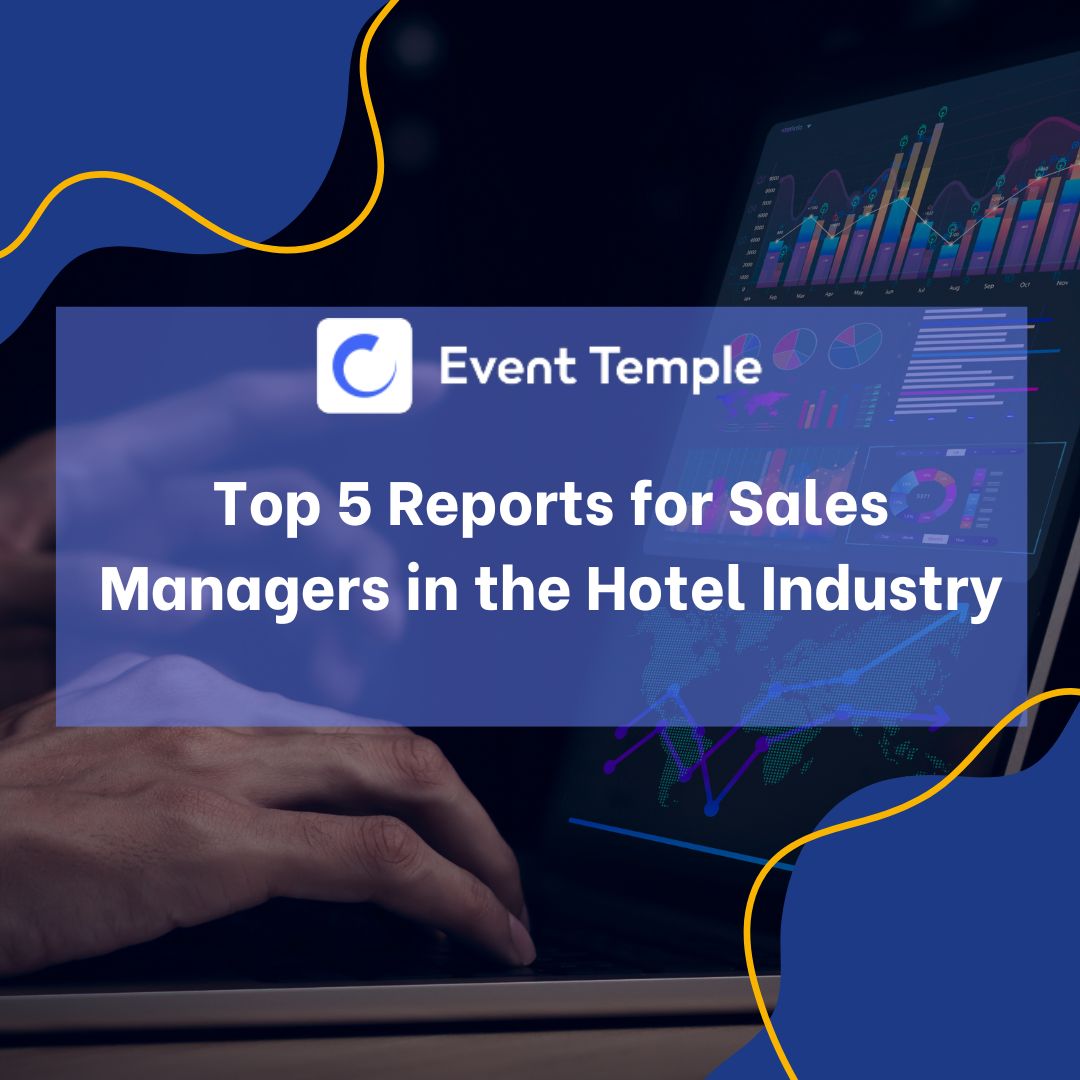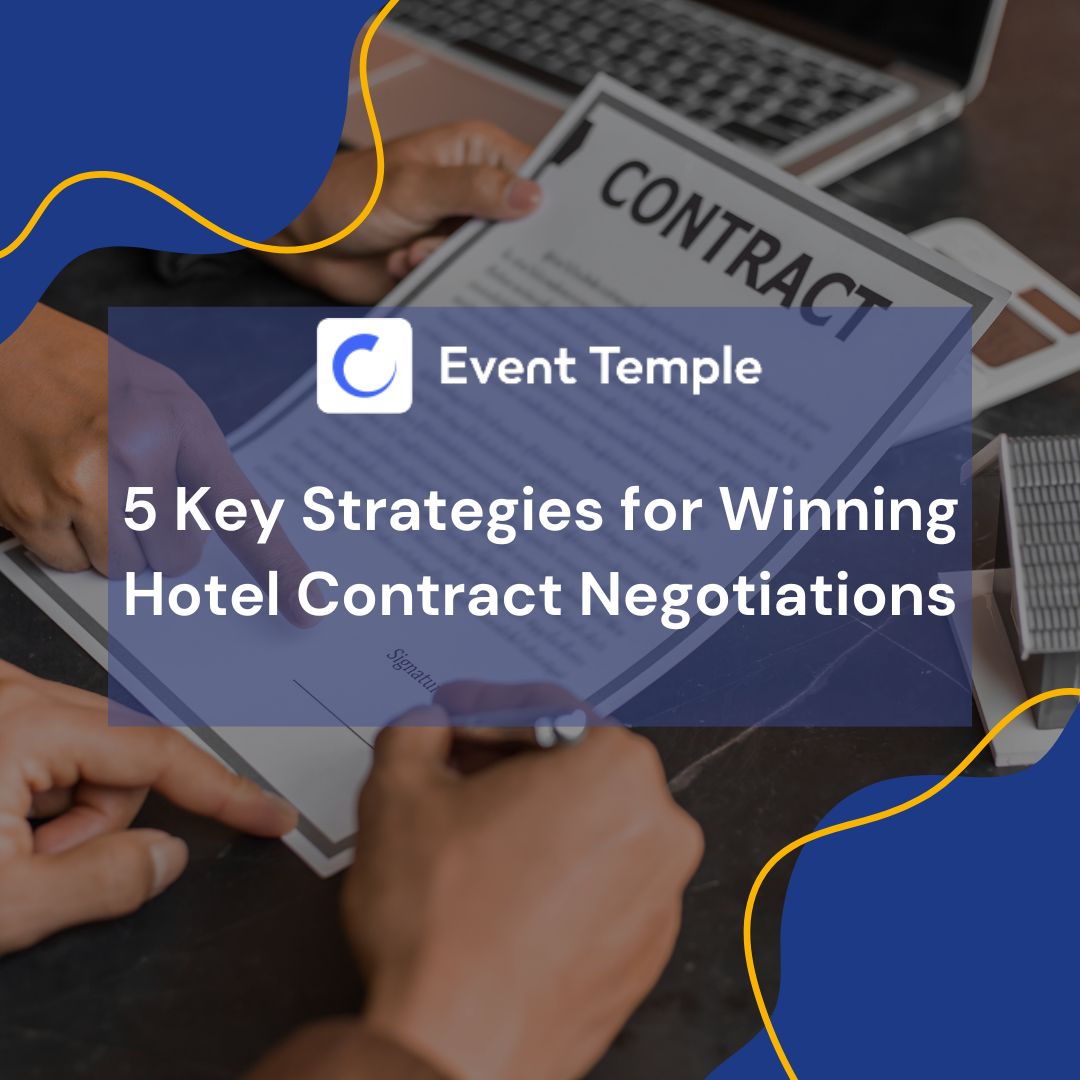Big data is one of the latest emerging technologies that has made it simpler for marketers, especially event marketers, to expand their market research and discover opportunities for success. As a result, big data has been the topic of discussion as it forms an integral part of many industries; around 97.2% of businesses are investing in big data, and event marketing is no exception. Although using big data for event marketing is not new, it has advanced significantly in recent years.
As more individuals rely on digital devices and leave larger digital footprints, big data has made gathering and using data significantly easier to elevate their event experiences. Big data is crucial, and no one should underestimate its utility as a tool for effectively making sense of massive amounts of data. Worldwide data is predicted to reach just over 180 zettabytes by 2025. It's mind-boggling!
To keep up with current tech trends and derive insights from unstructured data, event marketers leverage big data for event marketing to promote highly personalized events and enhance attendee engagement.
This article will first provide a brief overview of big data and event marketing and then will discuss how big data benefits event marketers.
Leverage big data for event marketing: The 4 Benefits
Big Data Defined
In layman's terms, big data refers to the enormous volume of unstructured data collected daily. This colossal data, when structured, provides trends, insights and patterns of the most value to event marketers.
The idea of acquiring and storing massive volumes of data for analytics has long existed, but the term "big data" only really gained popularity in the early 2000s after industry analyst Doug Laney used the "3 Vs" to define it.
The three significant components of big data are:
1) Volume
Volume refers to the amount/size of the collected data. To derive significant value from the data it is necessary to consider the size of the data. Marketers collect data from many sources, such as social media, IoT devices, audio, images and videos. All these channels generate lots of data about a person that needs to be stored efficiently.
2) Velocity
The term velocity concerning big data means how quickly data can be created, gathered, and analyzed. IoT (Internet of Things) expansion has increased the amount of data flowing through any firm, and the rate at which it is processed is highly amazing. The crucial thing is to effectively handle and interpret this quickly generated data.
3) Variety
The collected data is primarily available in 2 types of formats:-
1. Structured data includes numeric data present in traditional databases.
2. Unstructured data includes emails, videos, text documents, audio and many more.
Benefits of Big Data
Big Data analysis enables businesses and hotels to discover new opportunities and gain meaningful insights. Let's quickly glance at some of the benefits of big data.
- 1. Acquiring and Retaining clients- An event marketer learns a lot about the targeted consumers’ preferences, behaviours, and needs through digital footprints that the consumers generate daily. Marketers utilize all the meaningful insights derived from the unstructured data to identify consumer patterns to outreach and acquire new prospects and fulfill the needs of existing consumers. This is necessary to maintain a long-term relationship with the consumers.
- 2. Product Development- Big data analytics gives businesses a chance to design and create cutting-edge new products that cater to the shifting wants of their clients.
- 3. Provides ample opportunities for innovation- Gathering insights from collected data enables companies to update existing products/services as consumer preferences change over time.
- 4. Targeted Promotions- Big data enables companies to tailor items for their target market without spending lots of money on ineffective advertising campaigns.
Event Marketing Defined
Event Marketing refers to the process of organizing, participating or attending events to advertise a product or a service. In addition, it helps to inform the customers about the products and build stronger relationships with them.
Event Marketing is crucial as most marketers (31%) think that event marketing is the most successful marketing channel overall.
In addition, around 84% of event attendees claim that following the event, they have a more favourable perception of the organization, brand, good, or service being advertised.Types of Event Marketing
There are many types of event marketing:
And more!
Benefits of Event Marketing
Let’s look at some benefits of event marketing:-
- 1. Acquiring new customers and maintaining relationships with existing ones- While event marketing is instrumental in helping generate prospective business, it can also play a big role in maintaining long-term customers. These long-term, positive relationships can increase revenue through upsells and referrals.
- 2. Promotes direct-client interaction- Event marketing offers direct-client interaction. These private, one-on-one conversations increase customer loyalty and help event marketers to personalize the brand.
- 3. Get meaningful insights from attendees' feedbacks- Events are not just for disseminating information; you may also learn from them. Consider event marketing as an opportunity to conduct consumer research and refine the product/services per the suggestions. To create as many worthwhile leads and clients as possible, feedback helps you change your strategy or carry on as you are.
- 4. Facilitates educating the target audience about the product/service- The primary goal of event marketing is to educate the target audience about the products. Product education and interaction help increase product stickiness with prospects and customers; it also helps increase brand awareness through word-of-mouth marketing.
The benefits of big data are endless!
Now let's witness how big data for event marketing can be beneficial.
Big Data for Event Marketing
Big Data for event marketing is usually unstructured data gathered from attendees, speakers, partners and the staff. Event marketers collect considerable data from their attendees, sponsors and target audience through surveys, emails and photos. This collected data is full of meaningful information; for example, it contains information on spending patterns while attending events, vendors' overall opinions, and guest speakers' interactions. In a nutshell, it's everything that conventional analytics platforms cannot track or keep an eye on. This big data can help create attendee-focused events, boost real-time attendee interaction, and provide improved event experiences.
The 4 Benefits
Let’s talk about how big data for event marketing is beneficial.
1. Ensures targeted marketing to save time and reduce costs
Every event marketer has massive amounts of data regarding the event attendees. The ideal scenario while hosting any event would be for everyone on the prospects list to attend the event, but it is only sometimes possible. Big data allows event marketers to filter out and engage just those prospects who are interested in the event and would actually benefit from attending the event, saving them valuable time and money (in the form of advertisements). This enables the marketers to market the event to potential guests rather than to everyone.
2. Helps to get a 360-degree view of attendees' requirements
Due to the emergence of big data, it is no doubt that event marketers now have access to more accurate information about their prospects. To convert a potential client into a customer, providing them with relevant content that matters to them is crucial. To do this, understanding your prospects is the first step. Event marketers often dig up data from digital sources like smartphones and tablets and analyze data like behaviour patterns, likes and dislikes, and specific trends regarding the attendees' psychographics and demographics to forecast the attendees' wants before hosting an event. These forecasts help personalize and customize components of the event to align with the preferences of the attendees - making the event more memorable, engaging and - in turn - successful!
3. Facilitates seamless planning of future events based on past events
Event marketers must pay close attention to every aspect, both in the present and in the past, to host a successful event. To ensure that attendees' preferences are considered in future events, reviewing the data from past events is essential. Data makes it possible for marketers to compare information over time to keep track of what they have been doing, what is working and what is not working. Preferences vary throughout time, but one should always consider the key details and lessons from the past to ensure that the present and future events are manageable. Every event marketer should understand the attendees' requirements beforehand to host a seamless event.
4. Helps in competitive analysis and strategy development
In this competitive world, where everyone is looking for what their competitors are doing and what strategies they are incorporating, big data plays a pivotal role in competitive analysis and developing strategies based on the findings. Several event management organizations are leveraging big data to see what events their competitors are hosting, how they are hosting them, and the strategies they use to make them successful. Big data not only helps event marketers to analyze competitors' current events but forthcoming events too.
Wrapping Up
The value of big data for event marketing is undeniable! It has changed the game for event marketers. Big data helps event marketers determine the precise factors and strategies for drawing potential guests. By tailoring event advertisements and providing personalized event experiences, marketers can enhance their event marketing efforts and draw in more people. Both event planning and event marketing benefit from the use of big data. Event planners can see every aspect of the planning process and can learn about the adjustments they might need to make at different points.We hope this blog helped outline the advantages of using big data for event marketing.



